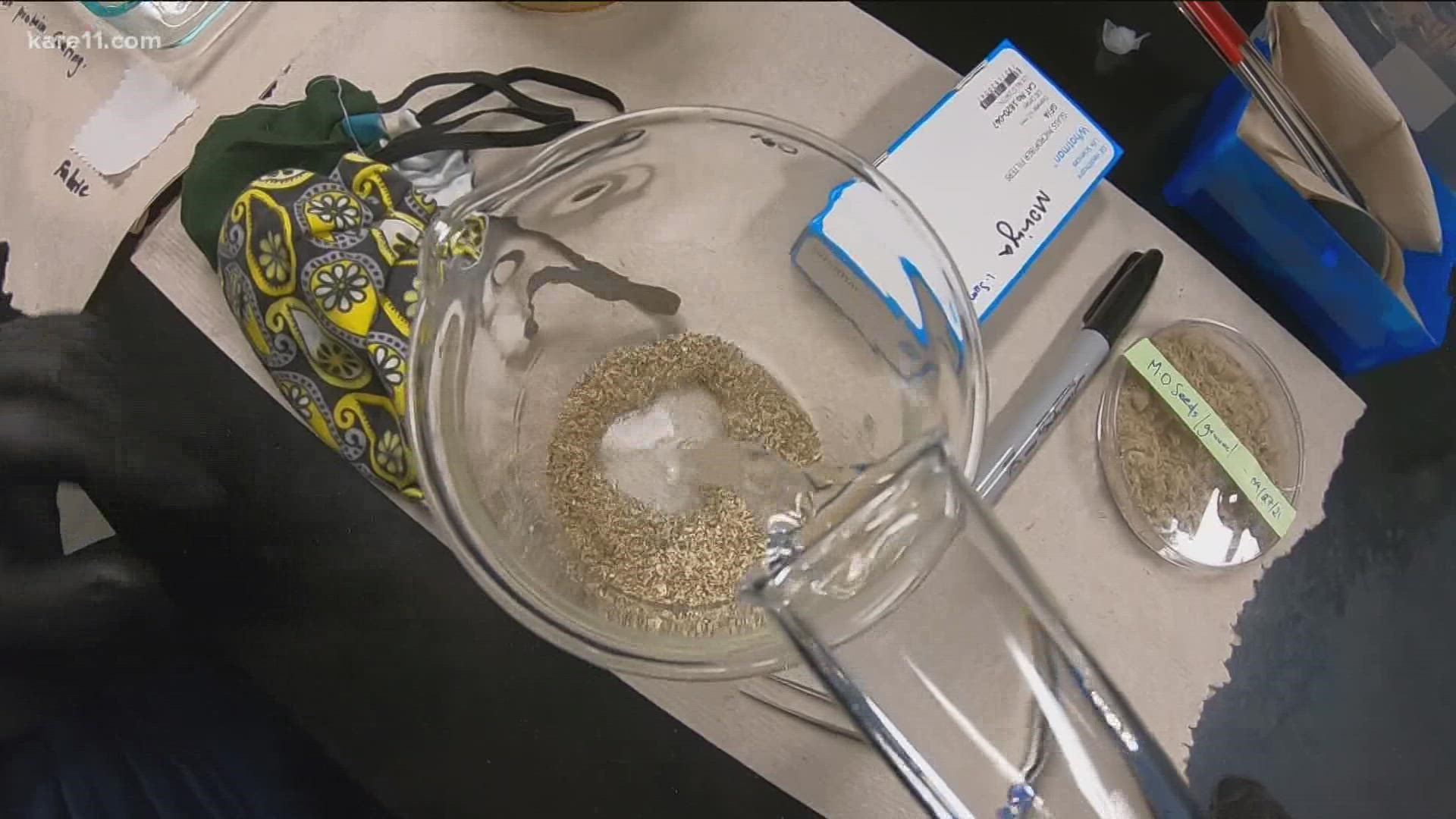MINNEAPOLIS — At her underground lab inside the Civil Engineering Building, University of Minnesota assistant professor Boya Xiong is busy this fall creating another tool to fight COVID-19.
And the best part?
"It will be really simple," Xiong said.
After submitting a pitch to the Centers for Disease Control and Prevention, Xiong's research team has received funding to start developing a liquid coating for textile facemasks, which could make them even more effective in removing the virus. Although the project remains in the early stages -- in fact, it's starting this semester -- Xiong hopes the liquid coating could ultimately be made from the comfort of people's own kitchens with moringa seeds, water, a coffee grinder and a coffee filter.
Initially, Xiong began working on the coating about five years ago, as a way to remove pathogens from water.
But when COVID-19 turned the world upside down, she decided to apply the method to the pandemic.
"We were inspired by the idea and how successful the coating was," Xiong said. "So we think, perhaps, we can also apply this coating onto face coverings."
The protein from moringa seeds, carrying antiviral properties, plays a key role to jumpstart the process. Eventually, if this idea comes to fruition, a person could run moringa seeds through a coffee grinder, dump the ground seeds into a container, add water and stir, run the liquid through a coffee filter, and then dip the masks into the remaining mixture.
"Let them air dry," Xiong said, "and they're ready to go."
Ultimately, Xiong and her research team envision the liquid coating being able to recharge, so that you could apply it over and over again to the same textile facemask. This method, Xiong said, could be even more efficient than using an N95 or surgical mask, since those are typically only used one time before they decrease in effectiveness.
"We hope that using this protein coating, we can actually develop a really simple process," Xiong said. "Just wash it off, recoat the protein, and you have a fresh mask that can remove the virus very easily. And we hope this all can be implemented by citizens at home."
Xiong said she'll focus this semester on creating the recipe for the liquid coating, before hopefully testing the efficiency early next year.
But she hopes the impact will extend beyond COVID-19.
"Definitely," Xiong said. "We think this approach and method that we're developing can be anchored toward other viruses as well."

